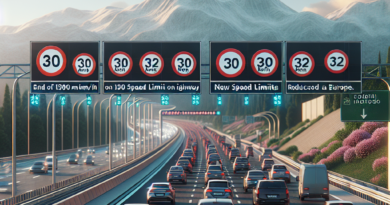Accident without insurance but with reason, am I entitled to compensation?
Those who drive without insurance risk a lot, the penalties provided for by the Highway Code are quite high and also include the seizure of the vehicle.
If the vehicle without coverage is involved in a road accident, the situation becomes even worse.
Assuming that the uninsured driver is at fault – and therefore responsible for the accident – he will have to pay for the damages out of his own pocket, resulting in difficulties for the injured party in obtaining compensation.
However, the opposite situation can also happen, i.e.
it is not the uninsured car that causes the accident, but the other one.
In fact there is no direct correlation between driving without insurance and the possibility of causing a road accident, so much so that there are many people who have had accidents without insurance but with reason, often with just as many cases in the courts.
One would expect a concise answer to this common doubt, to know whether compensation is due or not, yet the jurisprudence is full of conflicting interpretations.
According to some rulings, the motorist's guilty attitude would jeopardize his right to compensation.
Other judges, however, do not find any connection between the two elements.
The recent ruling by the Supreme Court, however, could change something.
Accident without insurance with fault As mentioned, anyone who causes an accident with an uninsured vehicle is still required by law to repay the damage caused to the other vehicle, to the people and to any property involved.
Since there is no insurance policy, however, the person responsible will have to pay the compensation personally (or part in the case of contributory negligence).
What risks those who have an accident with an uninsured vehicle Regardless of the duty to pay compensation, the driver still suffers the sanctions foreseen for driving without insurance: a fine ranging from 866 to 3,464 euros and the seizure of the vehicle.
To release the car or other type of vehicle involved it will be necessary to pay the fine, storage costs and take out an insurance policy for at least 6 months.
The fine can be reduced if the vehicle is demolished and removed from the PRA within 15 days of the expiry of the policy or within 30 days of the police complaint, but in the event of a repeat offense the sanctions are more severe and include the suspension of the license from 1 to 2 months and administrative detention of the car for up to 45 days.
This is the disciplinary sanction provided by the Highway Code to combat the driving of uninsured vehicles and has nothing to do with potential accidents and responsibilities.
Anyone caught driving without insurance is subject to these measures, even if they are not involved in a road accident or are rightly so.
read also RC Auto 2024, new legislation and obligations: who has to pay? Accident without insurance with reason In the context of a road accident between insured vehicles, drivers receive payment of compensation from their insurance company, which will then have the right to recover the insurance relating to the party responsible for the accident, with a full refund in case of tort and partial in case of contributory negligence.
The liability will still have an effect on the insurance premium.
If the parties involved do not have insurance, there is no intermediary who can provide payment, not even in the form of an advance.
As we have already seen, when the uninsured motorist is to blame for the accident, this problem is overcome in a very simple way, i.e.
by requiring him to pay the compensation directly, after all he has no insurance due to his own negligence.
On the contrary, it would be unfair to ask those who are at fault but are regularly required by the policy to pay the compensation out of their own pocket, even obtaining reimbursement from their insurance.
For this reason, the judges who expressed themselves in favor of the right to compensation for those who suffered damage in a road accident without having insurance provided direct compensation as a method.
The responsible driver's insurance company pays those who have suffered damages directly, without intermediary steps.
As already mentioned, however, not all courts have shared this orientation.
Some sentences, in fact, have denied the right to compensation, arguing that the uninsured vehicle should not have circulated and therefore that if the law had been respected the accident could not have occurred.
No law explicitly provides for a correlation between these aspects, the law simply requires that the uninsured driver who causes an accident pays, but does not sanction the loss of the right to compensation for damages.
Lacking a specific mention, judges interpret the law according to the circumstances, applying the legal principles that seem best suited to the facts.
What changes with the ruling of the Supreme Court The Court of Cassation does not agree with the denial of compensation for damages to the driver who has an accident with reason, considering that not having RC is a violation of the Highway Code which has no logical connection -causes them with the accident.
Those who break the law by driving with a high blood alcohol level, for example, are more prone to distractions and reckless behavior.
However, the lack of a policy does not have direct effects.
Furthermore, the obligation to insure vehicles is an administrative rule that regulates relations between citizens and the State, while the duty to compensate for damage caused to others is of a civil nature and applies in relations between private individuals.
For these reasons, sentence no.
1179/2022 of the Supreme Court recognized the right to compensation for a driver without a policy at the time of the accident.
read also Highway Code 2024, the most important innovations of the reform




